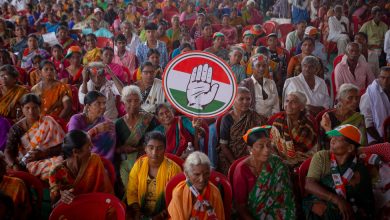Neil Young and Liz Cheney, Thanks for Sticking Your Necks Out

In an era when so many leaders in American public life are behaving badly, I never want to miss a chance to give a shout-out to those daring to stick out their necks on principle. So, Representative Liz Cheney and singer-songwriter Neil Young — this Bud’s for you.
By each in your own way taking a stand against those who seek to profit politically or financially from spreading lies, you’re doing something truly important. You’re reminding the nation that these are no ordinary crises we’re in — regarding the health of democracy, the health of our society and the health of our planet. This time really is different.
Unfortunately, too many people prefer to anesthetize themselves against this reality. Sure, they’ll say, a pro-Trump mob ransacked our Capitol as part of an effort to overturn the 2020 election, but they failed and we can move on. You know what Winston Churchill said (actually, there is no proof that he said it, but whatever): “Americans can always be counted on to do the right thing — after they have exhausted all other possibilities.” We’ll get to that “right thing” soon, we’re told.
Similar self-delusions are applied to our climate. Sure, we tell ourselves, we’ve experienced steadily more extreme weather events in the last seven years (the hottest seven in recorded history). But you know what they say: If you don’t like the weather, just wait a few minutes — it always seems to return to the four-seasons climate we’ve always known.
Wrong, wrong, wrong. This time really is different.
We are out of harmony with each other and out of harmony with nature. Unless more people take principled stands against those undermining truth and trust, we simply will not have the tools we need to roll back extreme politics or extreme weather or extreme pandemics — once we’ve exhausted all the other possibilities. Later will be too late.
It is why we urgently need more “I just don’t care what you say about me, I am not going to sit silent any longer” truth-tellers like Cheney and Young.
Let me try to explain the urgency of this moment by drawing a parallel between how our environment and our political system are both losing critical buffers that had long kept them stable.
Sometimes it’s helpful to think of the interlocking systems that support life on earth as if they were parts of a car that chugs along, occasionally hitting potholes that we humans create through our excesses — CO₂ emissions, deforestation and pollution.
This car always had lots of bumpers, spare tires, shock absorbers, airbags and backup batteries to keep it running smoothly, no matter how recklessly we drove, according to Johan Rockström, one of the world’s leading earth system scientists, who heads the Potsdam Institute for Climate Impact Research in Germany. These buffers were our oceans, ice caps, tropical forests, glaciers, freshwater rivers, coastal mangroves and rich topsoils, and they were able to absorb so much of our abuse and keep us in this Garden of Eden climate we’ve enjoyed since the last ice age.
Lately, though, Rockström notes, we have started to see weather events that are not just extremes but “super-extremes.” We’re talking 100 degrees Fahrenheit in the Arctic; a polar vortex freezing Texas; some areas of Germany getting nearly double the amount of rain in a two-day period in July than usually falls in the whole month; and cracks and fissures on the Thwaites Glacier in western Antarctica — which is about the size of Britain — prompting fears that it could break up, which alone could cause nearly two feet of sea level rise.
According to a long-term study by Rockström and fellow earth system scientists, soon to be completed, there is mounting evidence that these super-extremes are at risk of becoming even more frequent and severe — because our earth system car is running out of the spare tires, shock absorbers, airbags and other buffers to offset our behaviors.
And what is really scary, says Rockström, is that the 2015 Paris climate accord was founded in part on calculations that now look overly optimistic. It was thought that the most severe effects of climate change could be avoided if we kept the rise in the global average temperature below 2 degrees Celsius and, ideally, below 1.5 degrees, above preindustrial levels. But key earth systems are showing signs of being destabilized right now at only a 1.1-degree rise.
“We are seeing more and more evidence that the planet is more fragile than we thought,” Rockström told me. “We are in danger of losing key systems that maintained our planetary resilience.”
A similar threat applies to U.S. politics. Our political system over the years had all kinds of built-in institutional, media and normative bumpers, airbags and spare tires to protect us if a corrupt, or authoritarian-leaning, or utterly incompetent, party or leader emerged.
The most important buffer was a commons, or sacred space, that we never formalized but always knew was there — a neutral zone outside of politics, where leaders of both major parties were expected to (and usually did) act in the national interest. When Richard Nixon threatened the system, it was key Republican senators who told him he had to go.
Our other two vital shock absorbers were truth and trust. We could always count on enough of us trusting enough of us to collaborate to do big hard things together. And we could always count on enough of us embracing the same truth to collectively navigate our way out of any crisis.
Both are now vanishing before our eyes.
When Fox News and Donald Trump have converted the G.O.P. into a cult where the price of admission is embracing a Big Lie on election integrity, we can’t depend on the truth protecting us. When social networks like Facebook and Spotify are just fine with making money by prioritizing or hosting voices spewing outright falsehoods about vaccines, we can’t count on trust protecting us. When progressive cancel culture has permeated so many universities, institutions and newsrooms that many people are afraid to say what they believe — or to challenge orthodoxies — truth and trust are both hobbled.
Nothing could be more dangerous, because truth and trust are to our democracy what polar ice caps and tropical forests are to our biosphere: essential stabilizers that keep the system working. Once they melt away, a democratic system starts to unravel.
Because without a minimum level of truth and trust, everything becomes politics. Normal objects — like masks, vaccines, textbooks in public schools —— suddenly become neon signs identifying who you are for or against. And when everything becomes politics there is no neutral, sacred ground for leaders to gather in and collaborate in the national interest. It means that our democracy, like our climate, is much more fragile than we think.
That is why I respect what Cheney has done in drawing a line against Trump’s Big Lie. And it is why I respect Young for telling Spotify last week to remove his music from the streaming service because of Spotify’s willingness to continue hosting a podcast by Joe Rogan that promoted toxic misinformation about Covid-19 vaccines.
Explaining his actions, Young stated on his website: “I support free speech. I have never been in favor of censorship. Private companies have the right to choose what they profit from, just as I can choose not to have my music support a platform that disseminates harmful information. I am happy and proud to stand in solidarity with the frontline health care workers who risk their lives every day to help others.”
Rogan responded by vowing to “balance things out” in the future. I hope so. This was just one confrontation, but one that a lot of people watched. Cheney is having a much harder time making even a dent with Trump’s G.O.P.
But both she and Young are just reminding us — we have agency! If enough Americans stand up to defend a sacred commons, a space where truth must prevail and trust can be forged, we can make a difference. Without that effort, our democracy and our planet are in peril.
The Times is committed to publishing a diversity of letters to the editor. We’d like to hear what you think about this or any of our articles. Here are some tips. And here’s our email: [email protected].
Follow The New York Times Opinion section on Facebook, Twitter (@NYTopinion) and Instagram.



